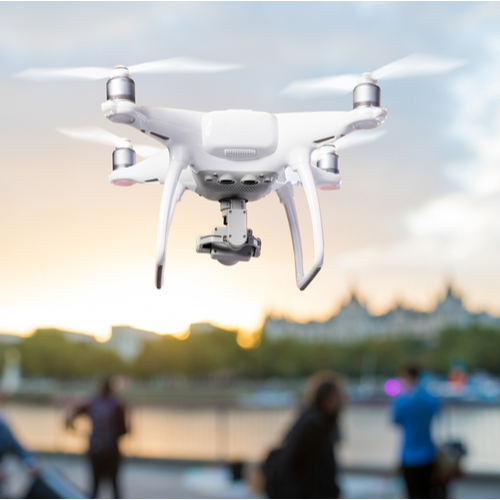26 March 2020
 A ‘pandemic drone’ to remotely monitor and detect people with infectious respiratory conditions is being developed by the University of South Australia (UniSA) in partnership with a Canadian company.
A ‘pandemic drone’ to remotely monitor and detect people with infectious respiratory conditions is being developed by the University of South Australia (UniSA) in partnership with a Canadian company.
The drone will be fitted with a specialised sensor and computer vision system that can monitor temperature, heart and respiratory rates, as well as detect people sneezing and coughing in crowds, offices, airports, cruise ships, aged care homes and other places where groups of people may work or congregate.
The UniSA team led by Defence Chair of Sensor Systems Professor Javaan Chahl, who holds a joint appointment DST, will work with Draganfly Inc, a North American drone technology company, to immediately start integrating commercial, medical and government customers.
Professor Chahl, working alongside Dr Ali Al-Naji and Asanka Perera, achieved global recognition in 2017 when they demonstrated image-processing algorithms that could extract a human’s heart rate from drone video.
Since then they have demonstrated that heart rate and breathing rate can be measured with high accuracy within 5-10 metres of people, using drones and at distances of up to 50 metres with fixed cameras. They have also developed algorithms that can interpret human actions such as sneezing and coughing.
He says the technology could be a viable screening tool for the COVID-19 pandemic.
“It might not detect all cases, but it could be a reliable tool to detect the presence of the disease in a place or in a group of people.”
Professor Chahl says the technology was originally envisaged for war zones and natural disasters as well as remotely monitoring heart rates of premature babies in incubators.
“Now, shockingly, we see a need for its use immediately, to help save lives in the biggest health catastrophe the world has experienced in the past 100 years.”
Draganfly CEO Cameron Chell says his company will use its sensor, software and engineering expertise to work with UniSA to integrate and deploy for government, medical and commercial customers.
“We are honoured to work on such an important project given the current pandemic facing the world with Covid-19. Health and respiratory monitoring will be vital not only for detection but also to understand health trends,” Mr Chell says.
Caption: A hovering drone fitted with a computer vision system will be able to detect people with coronavirus.
Notes for Editors
Footage demonstrating how this technology works is available by contacting javaan.chahl@unisa.edu.au or UniSA media officer candy.gibson@unisa.edu.au
Professor Javaan Chahl is Defence Chair of Sensor Systems at the University of South Australia and DST Group.
Draganfly is a leader in the professional drone industry, specialising in unmanned aerial vehicles, engineering and software.
Media contact: Candy Gibson office +61 8 8302 0961 mobile: +61 434 605 142
email: candy.gibson@unisa.edu.au
Lead researcher: Professor Javaan Chahl office +61 8 8302 6803 mobile: +61 429 459 394
email: javaan.chahl@unisa.edu.au




